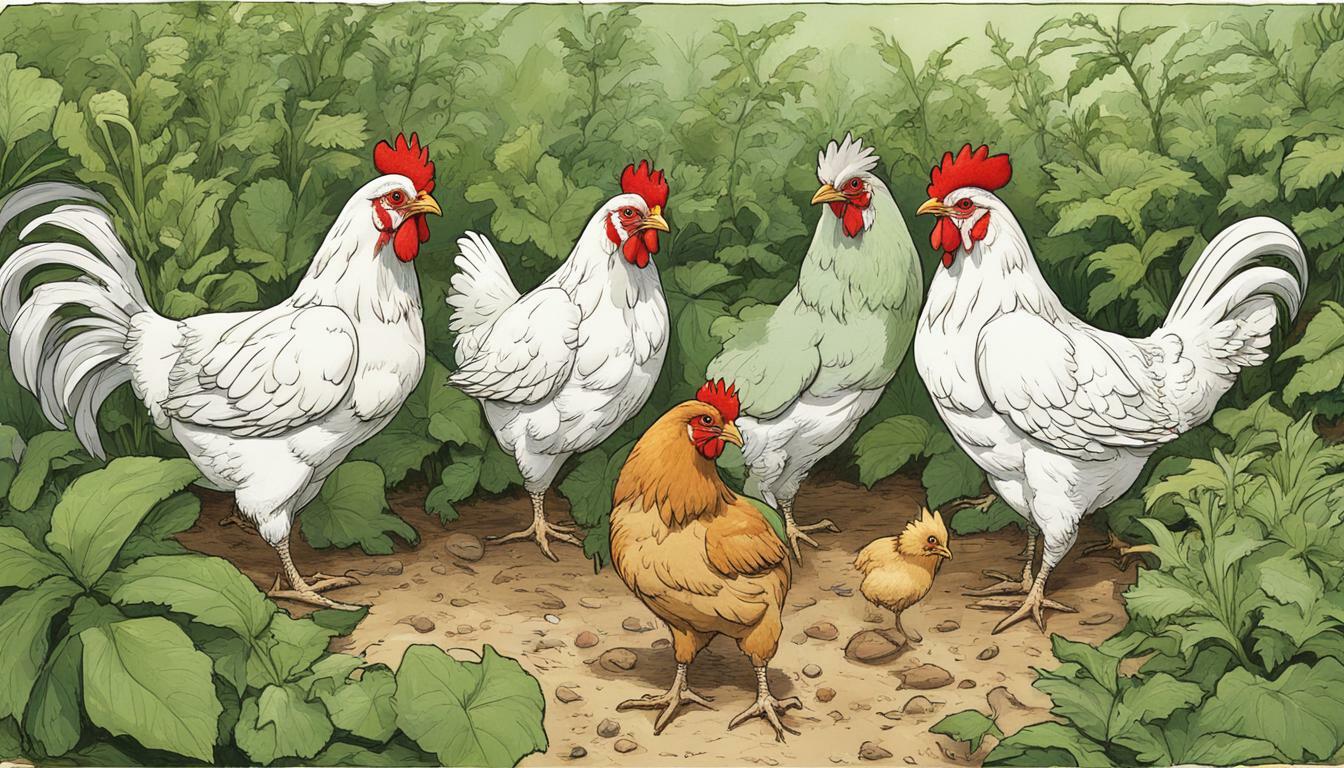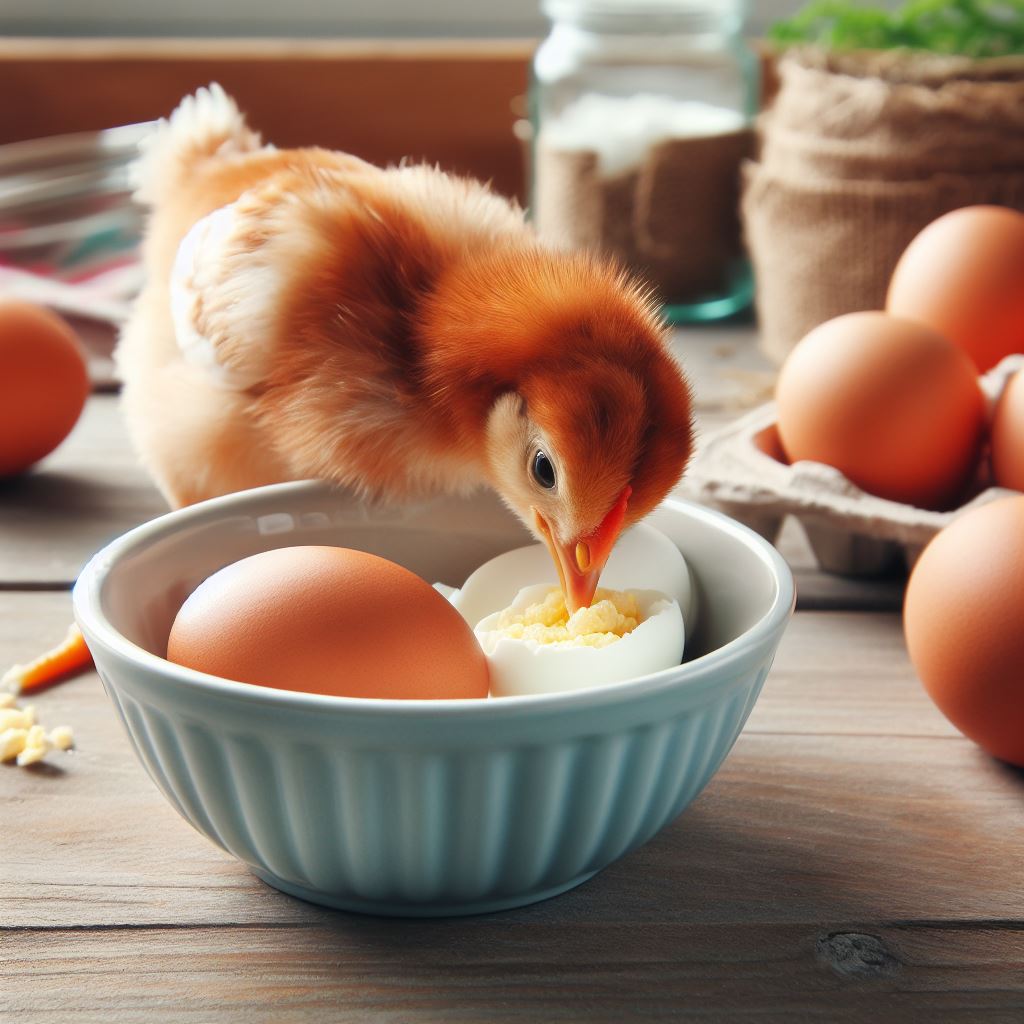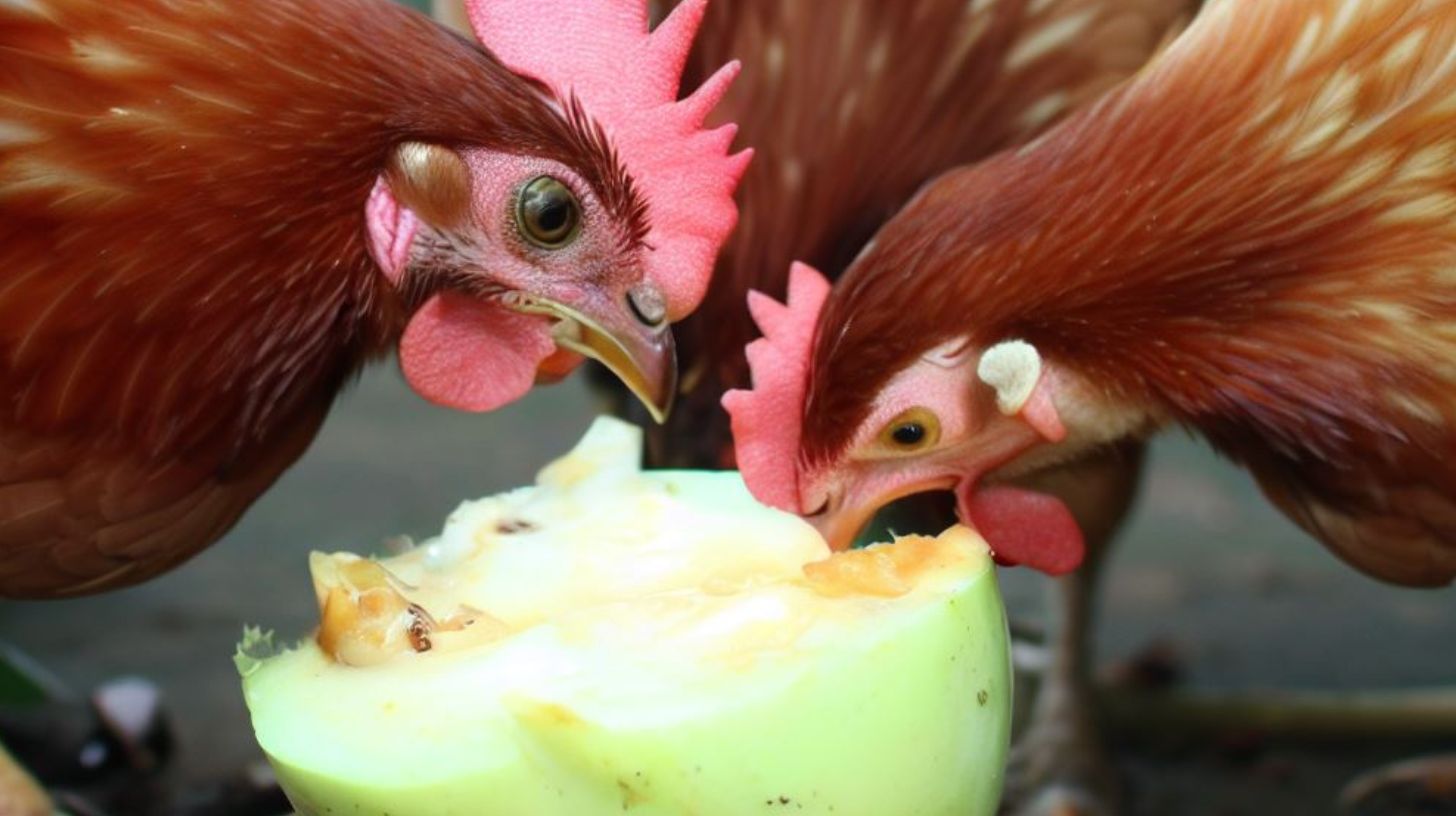Can Chickens Eat Poison Ivy? Discover the Surprising Truth

Table of content:
Poison ivy is a common plant that can cause an itchy rash in humans due to the oil called urushiol. But can chickens eat poison ivy safely? Let’s take a closer look at whether chickens can eat this toxic plant.
Can Chickens Consume Poison Ivy?
Chickens are omnivores and will eat a wide variety of foods. When allowed to forage freely, they will peck and scratch at nearly anything they can find. This includes plants, insects, seeds, and even small animals.
So can chickens eat poison ivy if they happen to come across it while roaming? The short answer is yes, chickens can consume poison ivy without any ill effects.
Poison ivy is not toxic or harmful to chickens if ingested. The urushiol oil that causes the allergic reaction in humans does not seem to negatively impact chickens at all.
Why Poison Ivy Doesn’t Affect Chickens
There are a few reasons why chickens are unaffected by poison ivy:
- Chickens do not have skin reactions to the urushiol found in poison ivy, oak, and sumac. The urushiol causes irritating rashes and blisters in sensitive humans, but does not irritate a chicken’s skin or feathers.
- A chicken’s digestive system can break down the irritating oil without any adverse side effects. Urushiol is not absorbed into a chicken’s tissues or bloodstream.
- Chickens groom themselves frequently, which may remove any oil from their beaks or feathers before it can be ingested.
- Chickens lack the immune response that causes the itchy rashes in humans. They do not appear to be allergic to urushiol at all.
So while poison ivy makes humans miserable, chickens are totally unaffected by it. Eating the leaves, stems or berries causes no issues for chickens.
Is Poison Ivy Beneficial for Chickens?
While poison ivy does not harm chickens, it does not provide any nutritional benefits either.
There are far better plant options to offer chickens that provide valuable vitamins, minerals, and amino acids. Poison ivy has little nutrient value.
The insects living on the poison ivy may be a good source of extra protein for chickens. But chickens should not be encouraged to eat large amounts of poison ivy, as there are no advantages and much better poultry feeds available.
Dangers of Poison Ivy for Chickens
Although chickens are unaffected by poison ivy internally, the plant does pose some indirect risks:
- Chickens scratching in poison ivy may get the urushiol oil on their beaks, feet or feathers. This oil could then be transferred to human skin, causing an itchy allergic reaction. Wear gloves when handling chickens that have been foraging in poison ivy.
- If chickens eat large amounts of poison ivy, they may pass seeds intact through their droppings. This can worsen poison ivy infestations by spreading the plant.
- Aggressive foraging in dense poison ivy patches can leave chickens more vulnerable to predators. The plant’s vines and leaves can entangle chickens or block their view as they scratch on the ground.
- Poison ivy provides very little nutritional value. Chickens that fill up on poison ivy may eat less of their balanced feed, potentially impacting their health over time.
So while poison ivy does not directly harm chickens if ingested, it is still best to control or remove this plant from any areas accessible to backyard chickens.
Protecting Chickens from Poison Ivy
Here are some tips for protecting chickens from potential poison ivy risks:
- Remove or treat poison ivy patches on the property. Goats can provide natural weed control. An herbicide specifically formulated for poison ivy can also eliminate the plant. Always follow directions carefully when using chemicals.
- Build enclosed chicken runs and coops out of fencing or hardware cloth to keep chickens away from landscaped yards. Chickens should not have access to wander freely.
- Use gravel or landscape fabric to block weeds and plants from growing inside chicken enclosures. This creates an unappealing bare scratching surface.
- Provide adequate space and foraging opportunities inside the coop run. Bored chickens will be more likely to eat whatever plants they can reach through the fence. Plant bird-safe shrubs, trees or vegetables right inside the run for environmental enrichment. Set up a few small dust bathing areas.
- Monitor chickens closely when allowing free-range time in the yard. Use temporary fencing to keep them away from poison ivy patches. Train chickens to return to the coop several times per day to discourage roaming.
With some awareness and a few precautions, backyard flock owners can safely keep chickens while avoiding issues with poisonous plants.
Final Thoughts
In summary, chickens can eat poison ivy without any risk of harm. The active oil urushiol does not irritate a chicken’s skin or digestive system. However, poison ivy provides no nutritional value for chickens. It is better to remove poison ivy from areas near chicken coops to prevent spread. With proper coop and run management, poison ivy should not become an issue. Chickens can be kept productively and safely even when this common plant is present on the property.
Welcome. I’m Adreena Shanum, the proud owner of this website, and I am incredibly passionate about animals, especially poultry. I founded adreenapets.com as a labor of love, stemming from my desire to share my knowledge and experiences with poultry enthusiasts worldwide.




